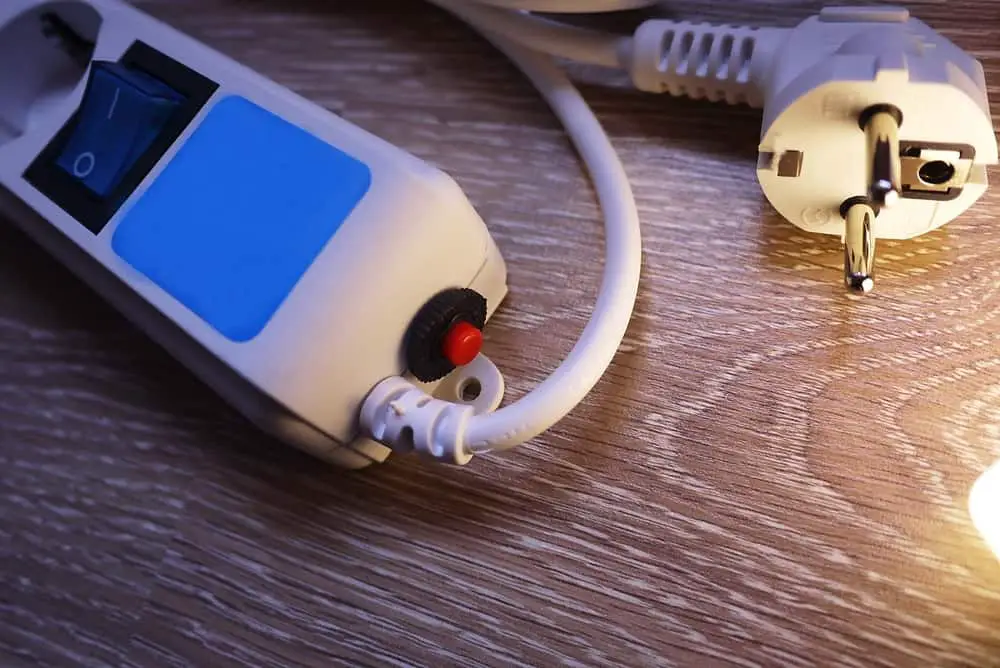A good surge protector is something that every home and office should have.
It guarantees safety by protecting appliances and devices against extreme power surges that could potentially damage them.
There are different types of surges. Many people turn them off when they are not in use, especially at night.
So, Should You Turn Off Your Home’s Surge Protectors Every Night Before Bed?
Even though it depends on the number of appliances and devices connected to electricity at night, it is a good idea to turn them off. Primarily, it helps to save on electricity. There are many other reasons for this choice.
What Are Surge Protectors and What Do They Do?
Surge protectors are devices designed to safeguard your appliances from electric spikes.
They do so by warding unwanted voltages away from your electronic devices. Without surge protectors, your devices will receive high levels of electricity which has the potential to damage them.
What Happens If You Do Not Use a Surge Protector?
Surge protectors are made to protect your electronic devices in case of an electric spike. Otherwise, they can operate perfectly fine without it.
Installing surge protectors is a safety precaution in case of a future spike. And it is essential not only for the safety of the devices but also for the occupants.
You won’t realize that with time, your gadgets will slowly decline since they are not guarded against abnormal voltage surges.
High surges wear them down and compromise with durability. Extreme surges obliterate devices.
What Is the Difference Between Surge Protectors and A Power Strip?
Many people often confuse surge protectors with power strips.
The truth is that both products are almost similar in design and function.
While surge protector works by preventing high voltages from reaching electrical appliances, power strips add extra outlet space to your home or office electrical connectivity.
Make sure that you consider rating when purchasing a surge protector.
Three Reasons Why You Should Turn Off The Surge Protector(s)
1. To Save On Electricity Bills
There is no denying that surge protectors are great consumers of electricity.
Temporarily shutting down your surge protector will go a long way in saving up to 20% of your electricity bill.
To put this in a clearer perspective, your surge protectors turn on devices that are not in use if the power they are left running at night.
The unneeded devices hence consume power over the night.
To add to the fact that the surge protector itself equally consumes some electricity in the process, you are in for a bumpy ride.
2. It Extends the Surge Protector’s Durability
Turning off your surge protector when appliances are not in use, especially at night, will help improve its life span.
Continuous use causes an intense accumulation of dust in the protector.
Consequently, it will malfunction. It can even break down in the long run. Make it last longer by switching it off at night.
Another issue is overheating. Overusing the surge protector causes it to overheat, decreasing its efficiency and eventually breaking down.
3. To Avoid Fire Hazards
Many households and offices use surge protectors daily.
While they are beneficial in surge protection, the same products can pose an extreme fire hazard when no appliances are connected.
As we mentioned earlier, surge protectors consume energy when no appliance is connected.
It, therefore, puts your house in great danger. If used continuously, spikes can start developing in the system.
Drastically, these spikes encroach on appliances and weaken them. In some cases, spikes can utterly damage the devices and even cause fire ordeals.
You need to turn off surge protectors at night when they are not in use to ensure safety.
Three Things to Look for When Purchasing a Surge Protector
Surge protectors are available in a broad spectrum. You, therefore, must pay keen attention to every detail when choosing one. Here are three key things you should keep in your mind:
1. Number of Outlets
When looking for a surge protector, do not be a minimalist.
There is every chance that you will constantly add more electronics.
You need to invest in a device with more outlets to accommodate your future needs.
2. Spacing
Buy a surge protector with enough spacing.
The space between the outlets should be large enough to accommodate large plugs. It’s that simple- consider the distance between one socket and the other.
3. Rating
All surge protectors have ratings in joules.
For instance, if you find a surge protector with a rating of 1000 joules, it indicates that it can cover many small appliances.
The higher the rating, the more appliances it can handle. A surge protector with a high rating can handle substantial power spikes and secure your devices.
Final Words
Surge protectors are very helpful in securing your electronic devices from electric damage.
By so doing, they also help avoid other greater problems like infernos.
As you have seen, they should never take them for granted.
Choosing an ideal surge protector for your home or office is one thing and the other to get it installed safely. Make sure that everything is perfectly done.
Sources
https://earlybirdelectricians.com/why-surge-protectors-are-needed/

